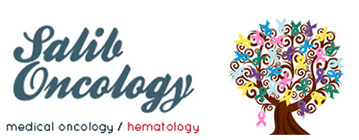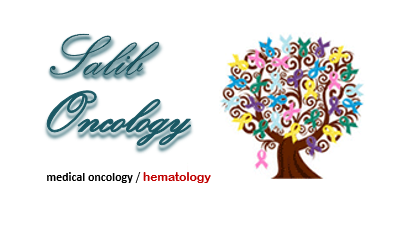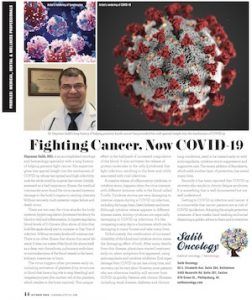What Is An Oncologist?
According to the National Cancer Institute, a Medical Oncologist is “A doctor who has special training in diagnosing and treating cancer using chemotherapy, hormonal therapy, biological therapy, and targeted therapy. A medical oncologist often is the main health care provider for someone who has cancer. A medical oncologist also gives supportive care and may coordinate treatment given by other specialists.”
An Oncologist’s primary job is managing cancer. We aren’t just chemotherapy doctors, in fact, we wear many different hats every day. During your treatment, your medical oncologist, must diagnose and assess the stage of your cancer, recommend and implement a treatment plan, and monitor your progress throughout the treatment.
Skills Your Oncologist Needs:
Advisor / Counselor– Your oncologist should explain your diagnosis, your prognosis, and the treatment options to your family.
Physician / Carer – Your oncologist needs to not only look after your cancer but also your personal needs including management of your symptoms. Most often, your oncologist is the person who will start palliative care, if needed.
Student / Researcher – Your oncologist will need to keep up to date with the latest treatments and will often be involved in testing them through clinical trials and medical research.
Manager – your oncologist is usually part of a multidisciplinary team and will often be the manager of that team
Types of Oncologists
Medical Oncologists treat cancer using chemotherapy or other medications, such as targeted therapy.
Surgical Oncologists remove tumors and nearby cancerous tissues during an operation. They will also perform certain types of biopsies.
Radiation Oncologists treats cancer using radiation therapy.
Gynecologic Oncologists treat gynecologic cancers, such as uterine and cervical cancer.
Pediatric Oncologists treat cancer in children. Some types of cancer occur most often in children and teenagers, such as brain tumors, leukemia, osteosarcoma, and Ewing’s sarcoma, but they might also appear in adults. In these cases, an adult may decide to work with a pediatric oncologist.
Hematologist Oncologist will diagnose and treat blood cancers, such as leukemia, lymphoma, and myeloma
When you are diagnosed with cancer, it is important that you see the correct oncologist, ask your primary doctor for their recommendation. If you have questions, please call Salib Oncology today.











